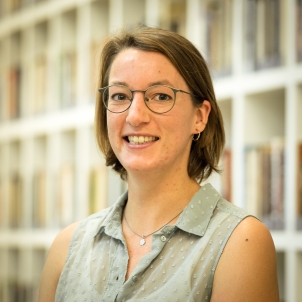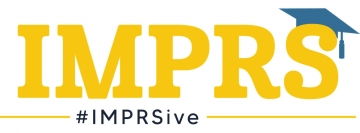Natascha on research facilities
Name: Natascha Roos
Department: Language Function and Dysfunction
Research: Unravelling how prefrontal cortex recruitment supports language functioning
Started at the IMPRS: 2019
Nationality: German
How did you come to pursuing your research topic in Nijmegen?
in my third year. I decided to apply for the masters programme in cognitive neuroscience at the Donders Institute. Two years later, I graduated but was unsure about doing a PhD. As there was no project that triggered my interests enough to dedicate myself to it for 4 years, I went to work in a different job for a while and was a research assistant at the Centre for Language Studies on the side.
During this time, I quickly realized that I was too intrigued by research in the field of my master project and kept looking for PhD positions. At the same time my master supervisor received a grant for a PhD project to continue the work of my master project. I was offered the position and started my PhD in September 2019, one year after graduating from my masters programme.
What are some of the highlights of your doctoral life so far?
During my studies at the Donders Institute, I was amazed that I could run my own experiments using MEG and MRI scanners, while only being a master student. Also, the research facilities in Nijmegen are certainly incomparable!
As a doctoral candidate, I’m amazed by the range of specialized courses and trainings on offer and the opportunities to get engaged in different organizations within the community. In general, life in Nijmegen and the Netherlands is very nice. Of course there are ups and downs, but Nijmegen is definitely a great place for doing a PhD!
The research facilities in Nijmegen are incomparable!
What advice do you have for peers or those considering doctoral studies?
My advice would be to make the PhD project your own and carefully design your training trajectory. Take a look at the vast opportunities to get involved, whether closely related to your research or extra-curricular. Try to think ahead what your next personal and/or career step will be and which skills you could potentially need or would be helpful for this. You can get so much out of the PhD training, even for future jobs that are outside academia. But also give yourself enough time to get an overview, as there is so much on offer and everyone needs to find their own way and pace. Most of all, try to enjoy the time as much as possible, even if it may seem impossible at some points in this rollercoaster ride.



Share this page